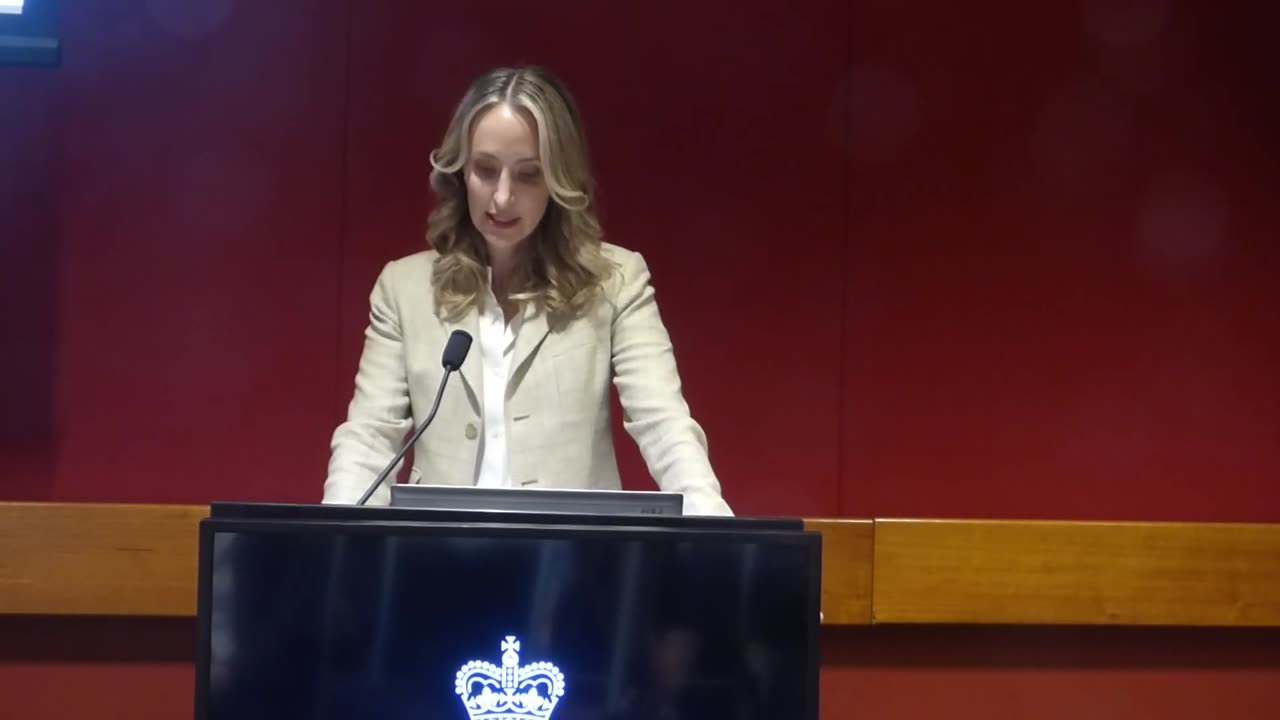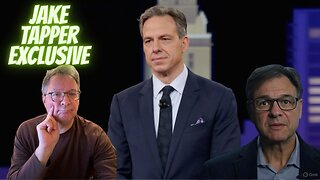Premium Only Content

Ms Claire Lehmann: Misinformation Bill - Single Arbiter of Truth?
SUMMARY:
------------------------------
In this talk from the Round Table Forum of WHA, the speaker tackles the proposed misinformation bill and explains why giving the government the power to declare what is true risks far greater harm than the fringe falsehoods it aims to stop. The presentation begins by acknowledging real harms caused by online misinformation and shares personal examples of being targeted by smears — including a single tweet that morphed into an untrue RationalWiki entry. Drawing on historical lessons like nineteenth‑century English vaccination laws and Australia's COVID‑era experience, the speaker shows how state attempts to control information can backfire, deepen mistrust and strengthen conspiracy thinking. The talk walks through the bill's key provisions, outlines how they threaten democratic freedoms and suggests alternative, liberty‑respecting ways to reduce harm without appointing a single arbiter of truth. For those who care about free speech, public debate and trusting Australians to make their own decisions, this presentation offers valuable insights into the dangers of government-controlled information policies.
RUMBLE DESCRIPTION:
-----------------------------------
In this recording from the Western Heritage Australia Forum, the speaker unpacks why the proposed misinformation bill is misguided and potentially dangerous. Rather than denying that online falsehoods can cause real harm, the presentation opens by acknowledging those harms and sharing personal examples of online smears and how a single false tweet can be amplified into so‑called 'fact' on sites like RationalWiki.
The talk is structured in three parts. First, the speaker explains the real risks that false information can pose to people and public debate. Then historical and recent examples are offered — from nineteenth‑century English vaccination laws to Australia's COVID experience and the Voice referendum — to show how government attempts to police truth often backfire and entrench mistrust. Finally, the presentation examines the bill's specific provisions, explains the implications for civil liberties and free speech, and proposes alternative approaches that aim to reduce harm without handing power over to a single state arbiter of truth.
The speaker encourages constructive conversation about whether Australians should be trusted to weigh evidence and debate, or whether the state should decide what counts as truth — a fundamental question about democracy and free speech in the digital age.
⚠️ CONTENT DISCLAIMER ⚠️
The views, opinions, and statements expressed in this video are those of the individual speaker(s) and audience members. They do not necessarily reflect the views, opinions, or positions of Western Heritage Australia or its affiliates.
This content is presented for educational and informational purposes as well as to facilitate public discourse on important social and political issues. We provide a platform for diverse Australian voices to be heard, to assist the public in forming their own informed opinions.
Western Heritage Australia does not endorse, verify, or take responsibility for the accuracy of statements made by speakers. All claims, statistics, and opinions remain the responsibility of the original speaker. Viewers are encouraged to conduct their own research and consult multiple sources when forming opinions on these topics.
This video may contain strong political opinions, controversial viewpoints, strong language, or mature themes. Viewer discretion is advised.
-
 37:47
37:47
Welker Farms
1 day ago $2.22 earnedWEIGHT and COST Finally Revealed! Monster BIG BUD!
13.8K8 -
![I Can’t Believe How INTENSE This Got! | [REC] (2007) Reaction](https://1a-1791.com/video/fwe2/5e/s8/1/k/L/j/r/kLjrz.0kob-small-I-Cant-Believe-How-INTENSE-.jpg) 26:54
26:54
SouthernbelleReacts
2 days ago $9.91 earnedI Can’t Believe How INTENSE This Got! | [REC] (2007) Reaction
22.2K2 -
 10:00
10:00
It’s the Final Round
18 hours ago $0.88 earned💰NFL Week 7 Best Bets🔥Player Prop Picks, Parlays, Predictions FREE Today October 19th
13.4K1 -
 15:35
15:35
Demons Row
14 hours ago $2.01 earnedThe Worst Sgt-at-Arms I Ever Met 💀🔥 (and the Mistakes I Made as One)
17.2K4 -
 9:34
9:34
Sideserf Cake Studio
1 day ago $1.16 earned484 Lego Bricks. 1 Hyperrealistic Cake.
14.4K1 -
 22:42
22:42
marcushouse
1 day ago $5.26 earnedMassive Surprises From Starship Flight 11 Revealed! 🤯
18.9K8 -
 14:08
14:08
Forrest Galante
11 hours agoPrivate Tour Of the World's Most Expensive Pet Show
139K10 -
 13:50
13:50
Nikko Ortiz
21 hours agoStop Hurting Yourself For Views.
19.3K12 -
 2:07:06
2:07:06
Side Scrollers Podcast
1 day agoDiaper Furry Streamer Gets ONLY ONE DAY Suspension + Hasan PLAYS VICTIM + More | Side Scrollers
51.7K23 -
 56:38
56:38
DeProgramShow
2 days agoDeprogram with Ted Rall and John Kiriakou: "Jake Tapper on the Global Hunt for an Al Qaeda Killer”
15.3K5